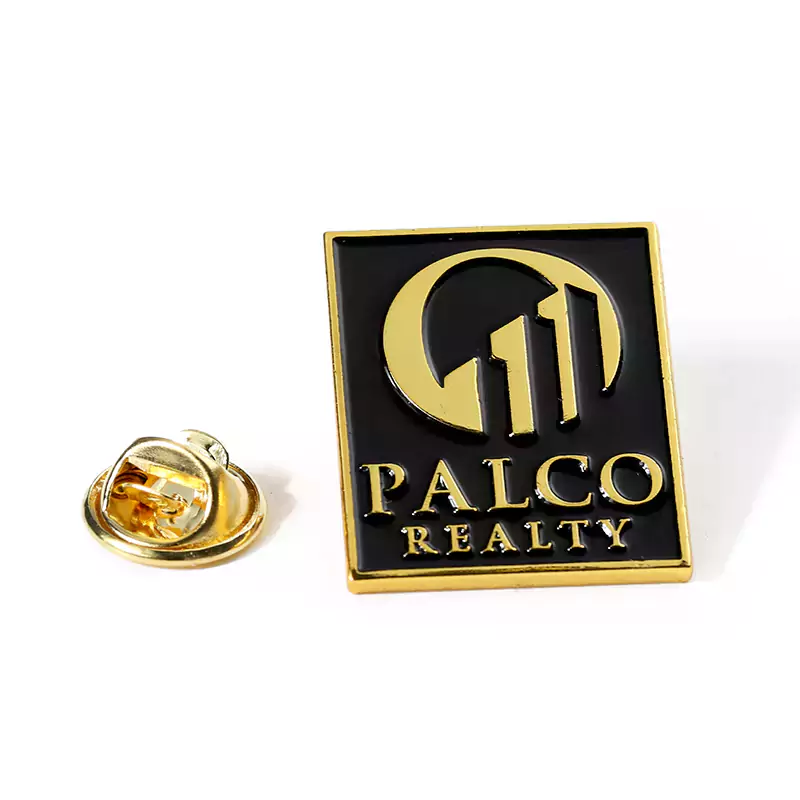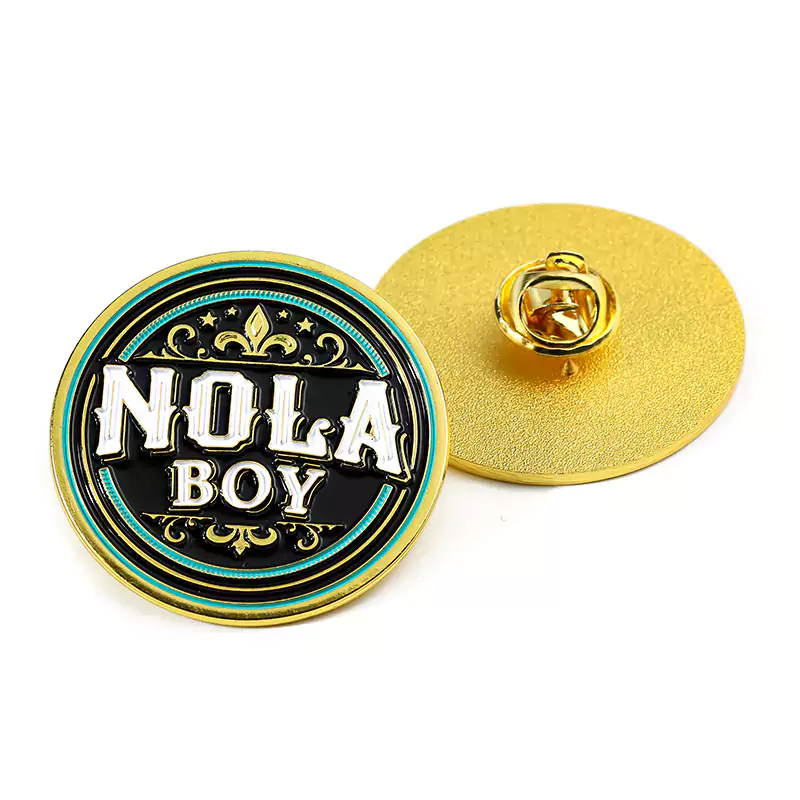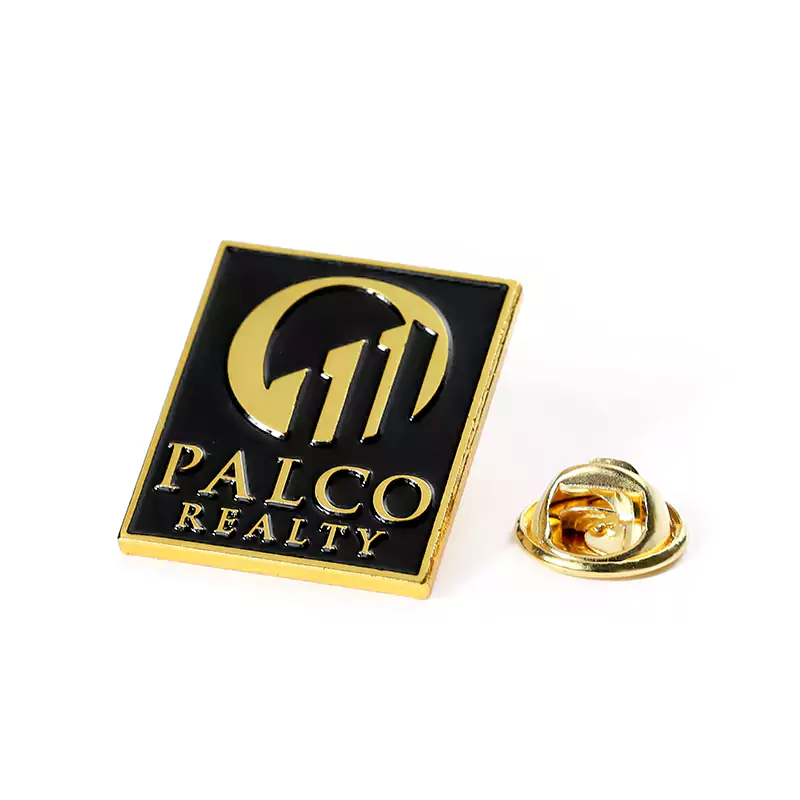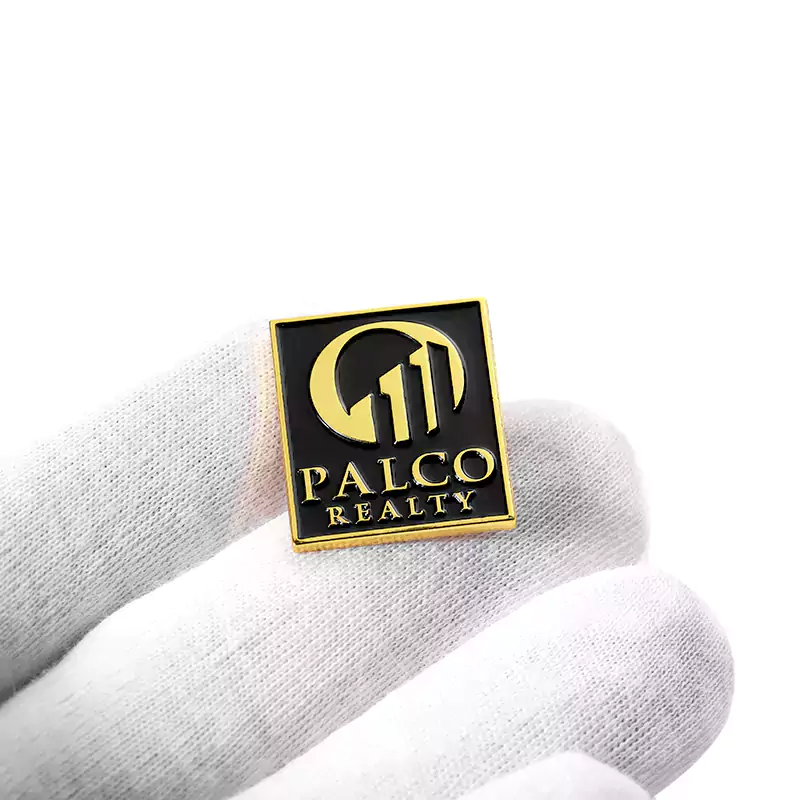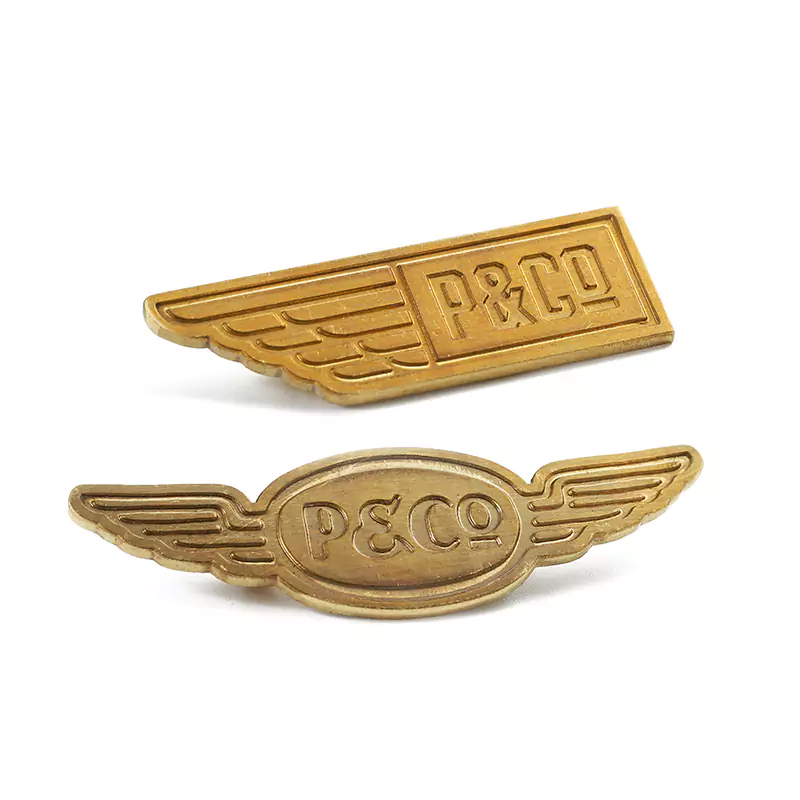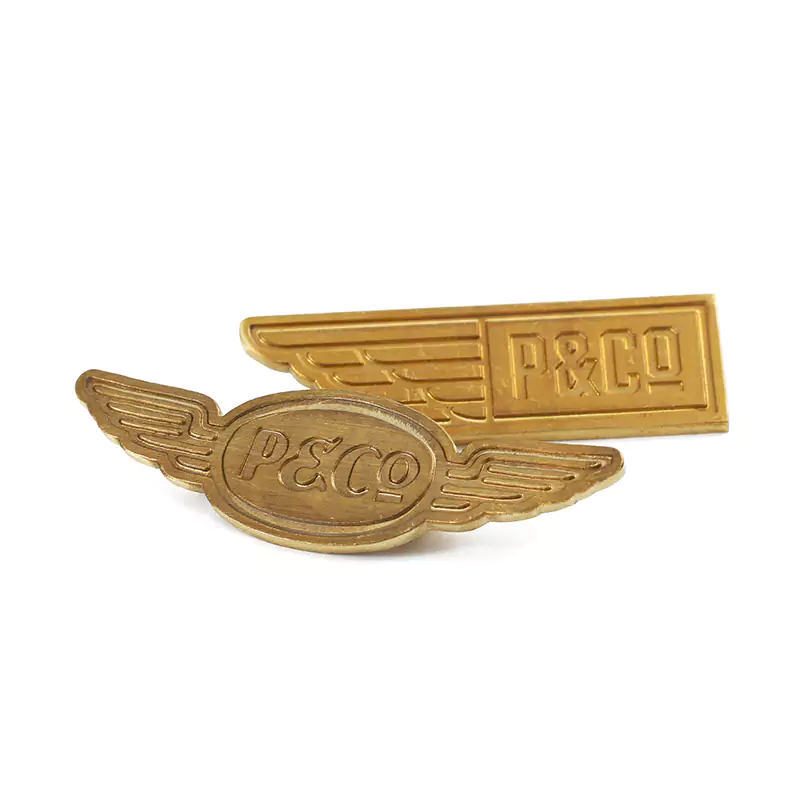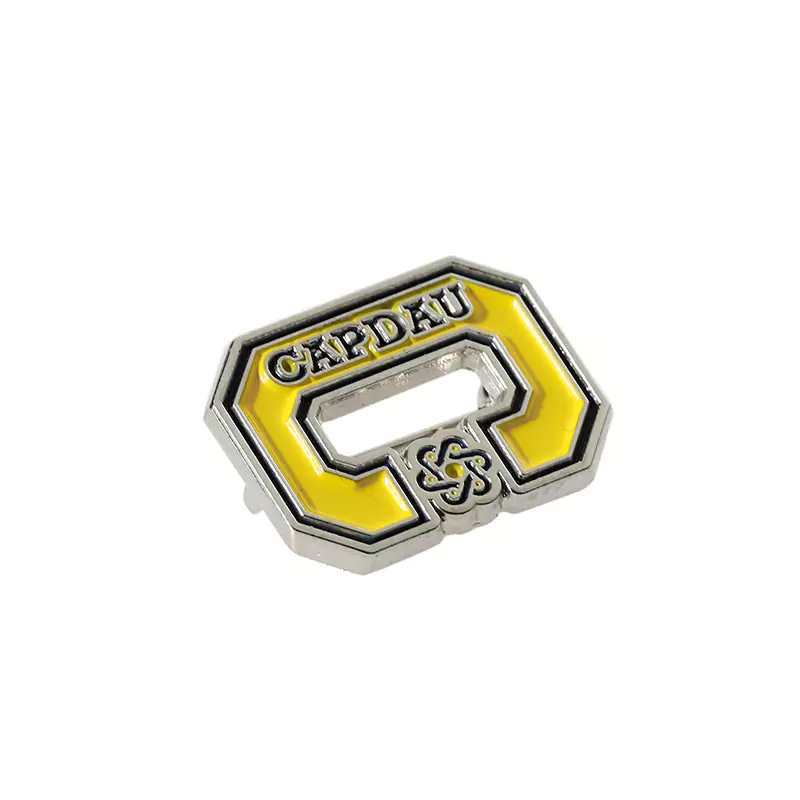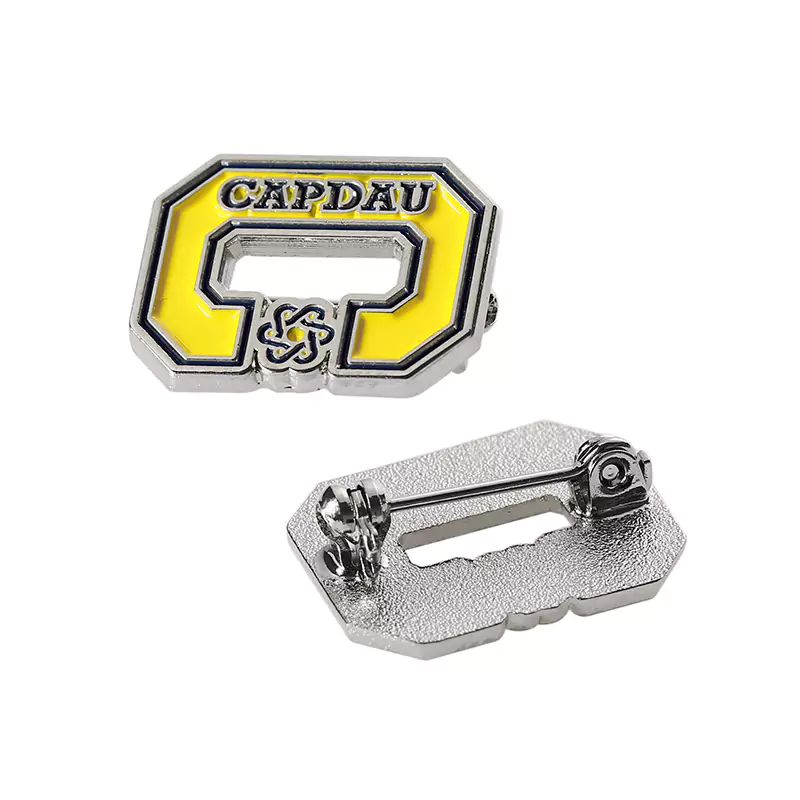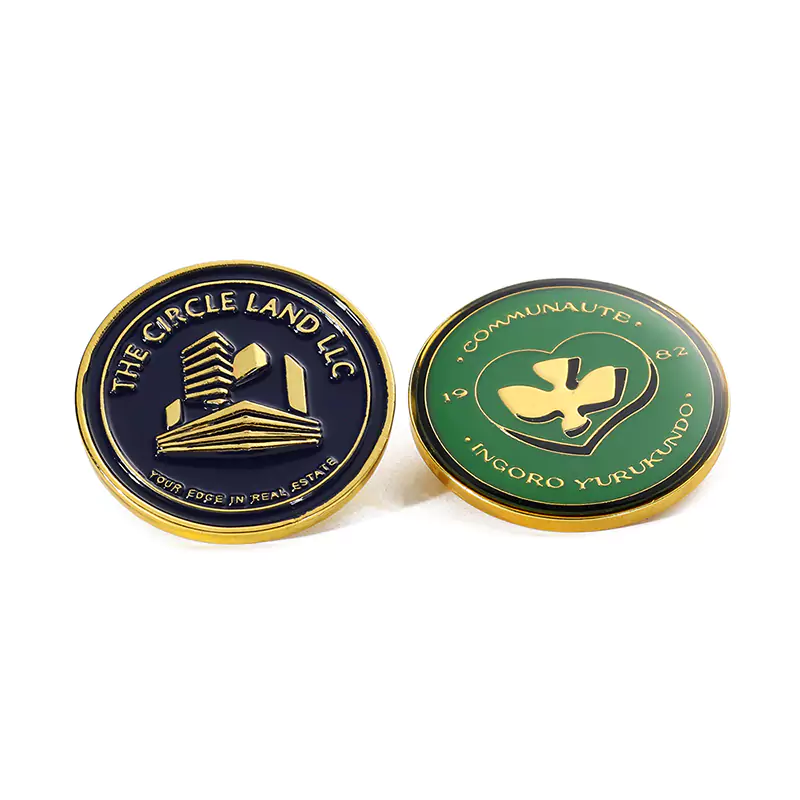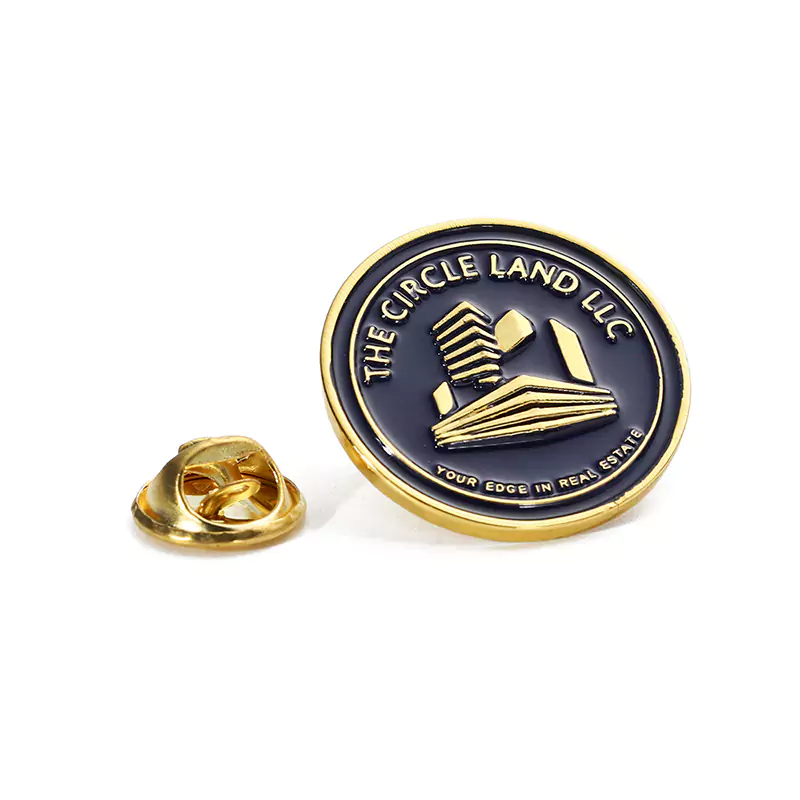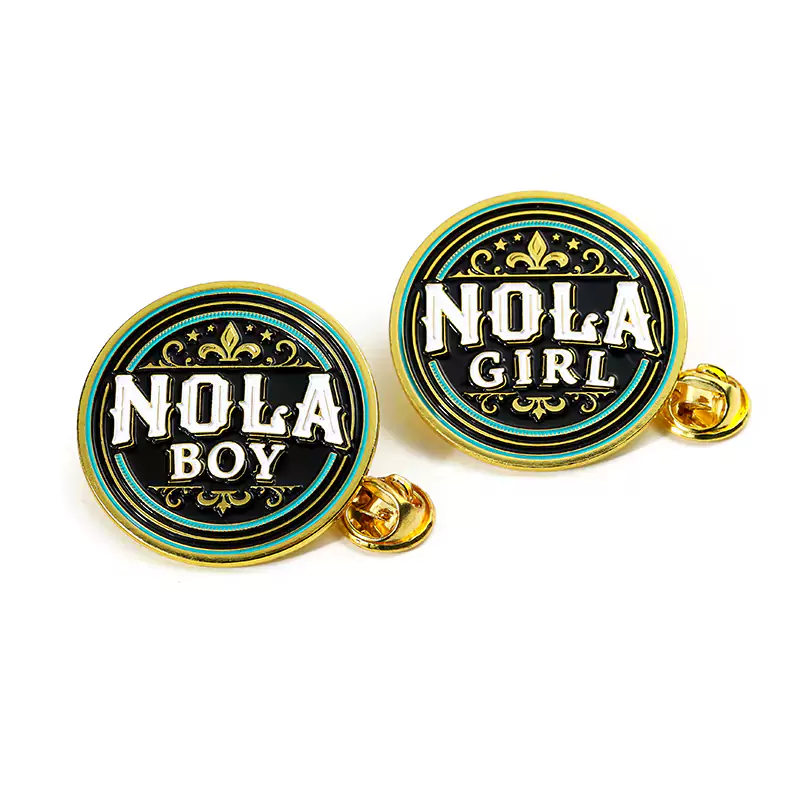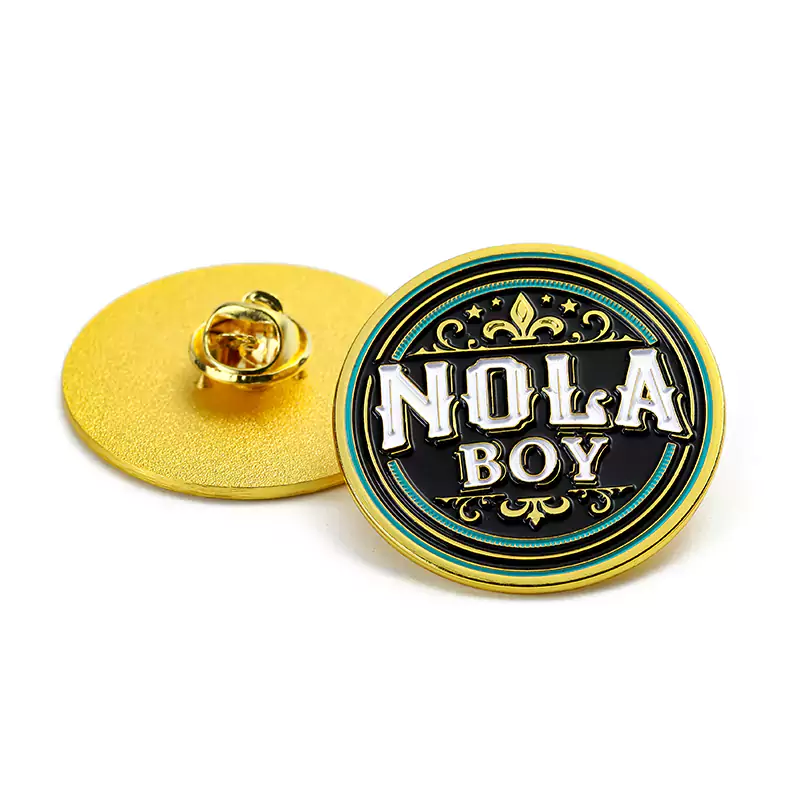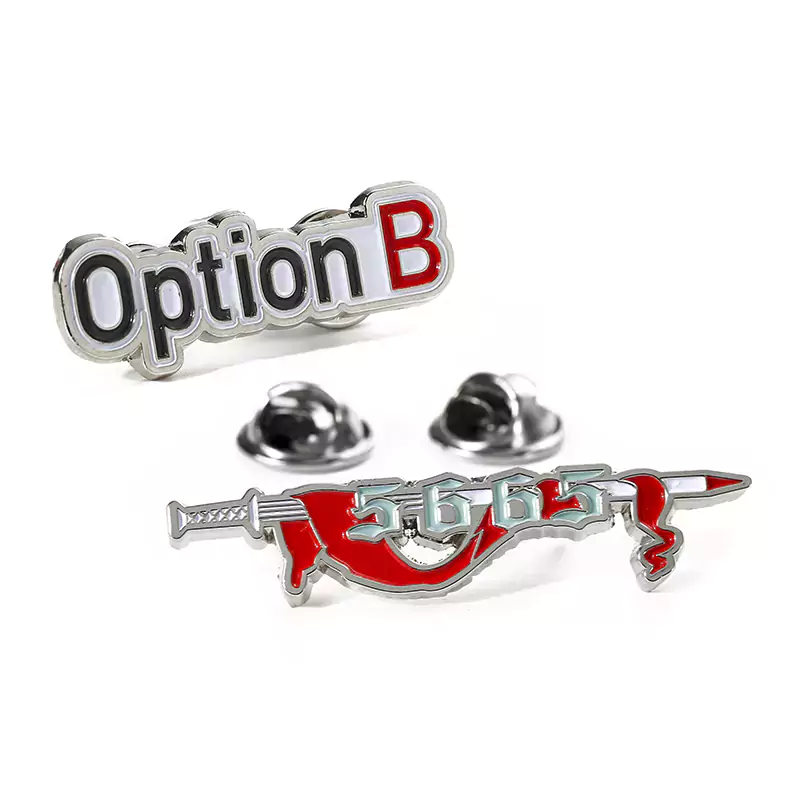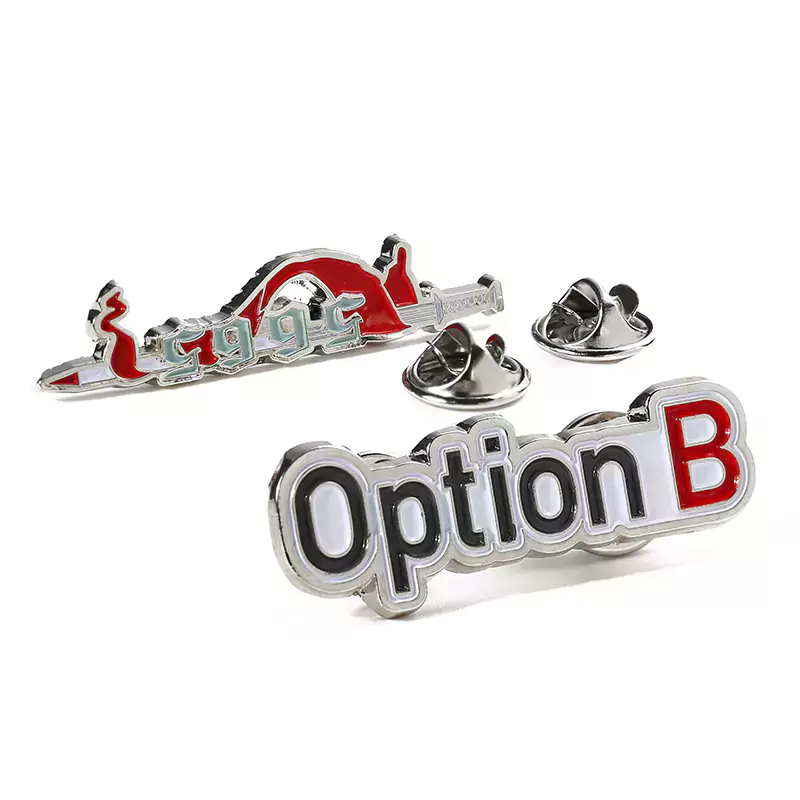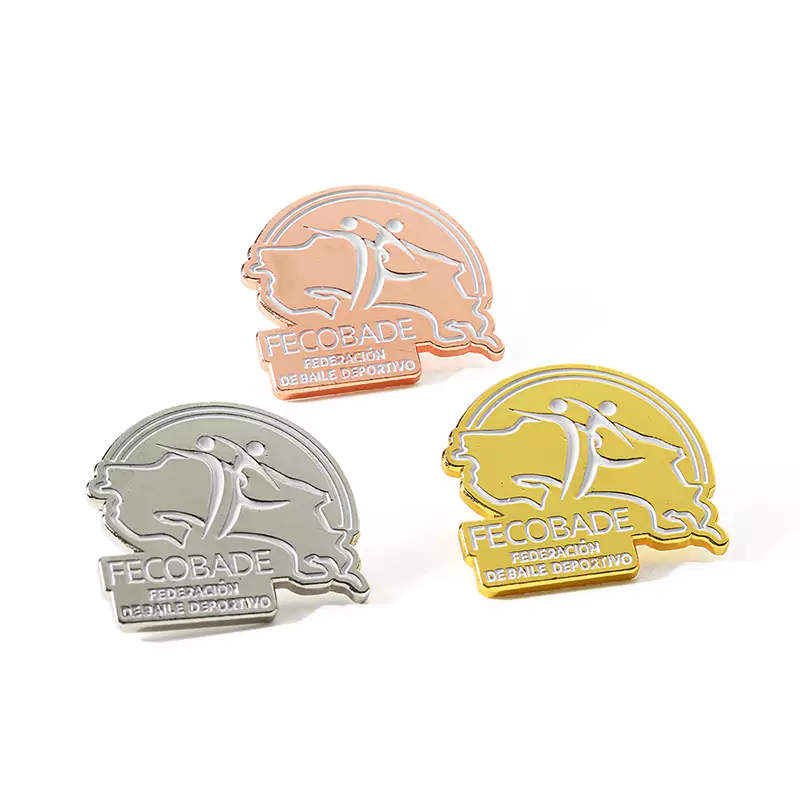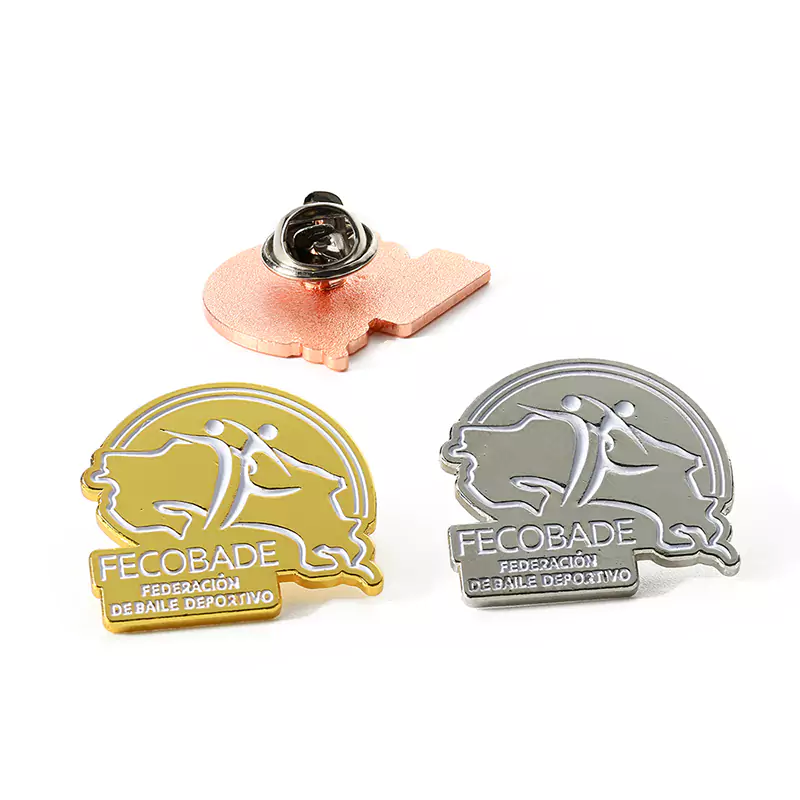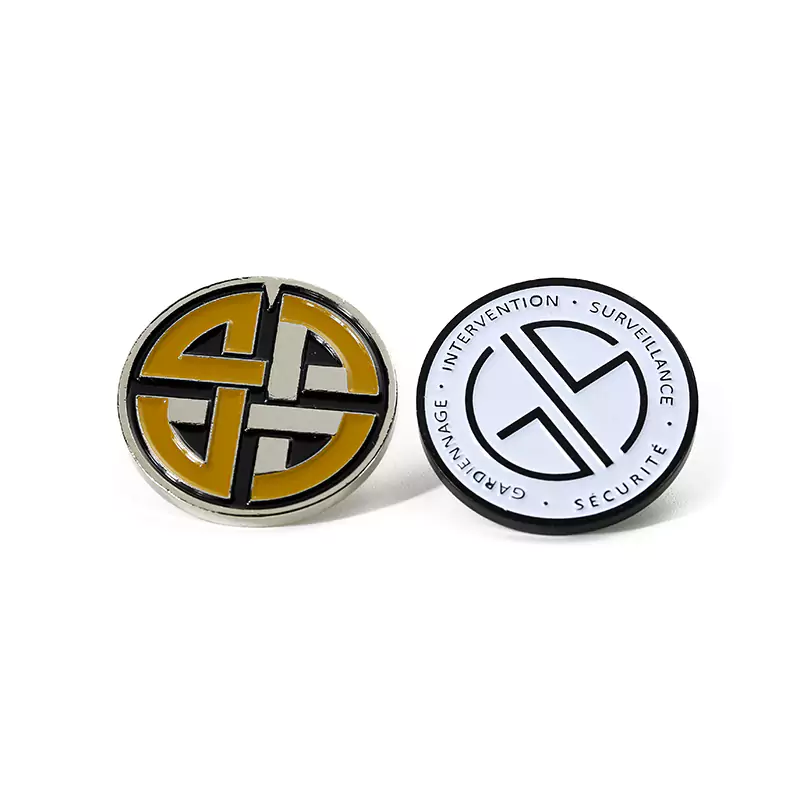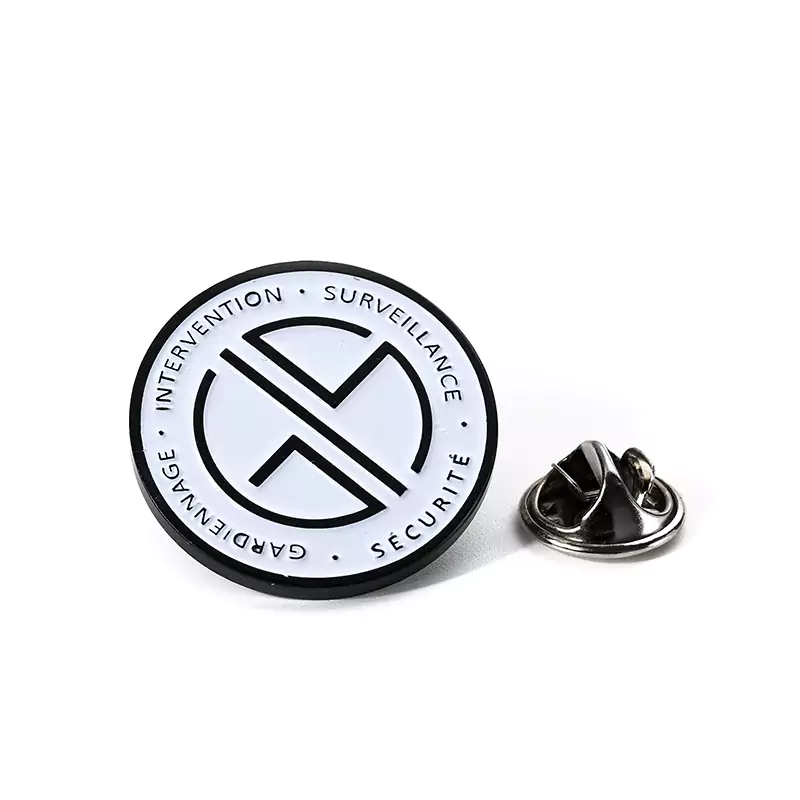This article provides a detailed guide to making metal badges, including key steps such as material selection, design, manufacturing process and quality control. Whether you are creating a badge for corporate branding, personal expression, or a fundraising event, this article provides you with valuable guidance to ensure a high-quality metal badge.
Metal badges have been a popular way for decades to display personal interests, commemorate an event, or promote an organization. These small but impactful accessories come in a variety of shapes, sizes and designs, making them a versatile choice for individuals and businesses. Whether you want to design a unique accessory for yourself or promote your brand, this guide will give you valuable insights into the world of metal badges, covering every step from design to production.
Metal Pin Badges Production Process
Step One: Understand Metal Badges
Custom metal badges and custom metal pin badges are personalized accessories designed to meet your specific needs. These badges can be used for a variety of purposes, such as corporate branding, fundraising, or personal expression.
Step 2: Choose the right material
The first step in metal badges is choosing the right material. Common options include:
Brass: Known for its durability and classic look, it is an excellent choice for elegant badges.
Aluminum: Aluminum is lightweight and cost-effective and is often used for larger badge orders.
Stainless steel: This material has a modern, sleek look and is highly resistant to corrosion.
Zinc Alloy: Zinc alloy has excellent casting capabilities and is suitable for producing detailed badge designs.
Your choice of materials will depend on factors such as budget, design, and intended use. For example, stainless steel may be ideal for high-end custom metal badges, while aluminum is suitable for high-volume custom metal badges.
Step 3: Design your badge
When making metal badges, it's crucial to create a visually appealing design. Here's what you need to consider:
Size and Shape: Determine the size and shape of the badge. Is it round, rectangular or a custom shape?
Artwork: Use graphic design software to create or enhance the artwork for your badge. Make sure your design is clear and visually appealing.
Color: Choose the right color palette for your badge. Some metal badges use an enamel or epoxy coating to add color and protect the design.
Text and logos: Include any text or logos relevant to the purpose of the badge. Make sure all elements are clear and positioned correctly.
Step 4: Find a Metal Badge Manufacturer
To bring your design to life, you'll want to work with a metal pin badge manufacturer or a company that specializes in custom metal badges. Find a reputable manufacturer with experience producing badges that fit your vision.
Step 5: Manufacturing Process
Once you choose a metal badge manufacturer, they will guide you through the manufacturing process, which typically includes the following steps:
Die Casting or Stamping: The selected metal material is cut and formed into the desired badge design.
Plating: A badge is plated with a layer of metal, such as gold, silver, or nickel, to enhance its appearance.
Color Filling: If your design includes color, this step involves applying an enamel or epoxy coating.
Polished: Badges are polished to a smooth, shiny surface.
Attachments: Depending on your preference, badges may come with a pin, clutch, or magnetic backing for attaching to clothing or accessories.
Step Six: Quality Control and Inspection
Before shipping your custom metal badges, the manufacturer should conduct quality control inspections to ensure each badge meets your specifications. This step is critical to ensure the quality and consistency of the final product.
Step Seven: Distribute and Use
Once the metal badges are ready, it's time to distribute or use them. Whether you use these badges for promotional purposes or personal expression, they can be a powerful tool for communicating your message and building connections.
Conclusion
Making metal badges is a rewarding experience that allows you to express yourself or promote your brand through a unique accessory. By understanding the materials, design considerations, and manufacturing processes, you can ensure that your metal badge is exactly how you envisioned it. Whether you are making a statement, commemorating an event or promoting your organization, custom metal pin badges offer a timeless and versatile way to do so. So start designing your custom metal pin badge or custom metal badge today! Making metal badges is a relatively complex process that requires certain professional knowledge and skills. If you do not have the relevant skills and experience, you can seek help from a professional badge maker or manufacturer. They can provide more accurate guidance and complete services to ensure that your metal badges meet the highest standards.
You Dream It, We Make It.
Hesank will help you out!






